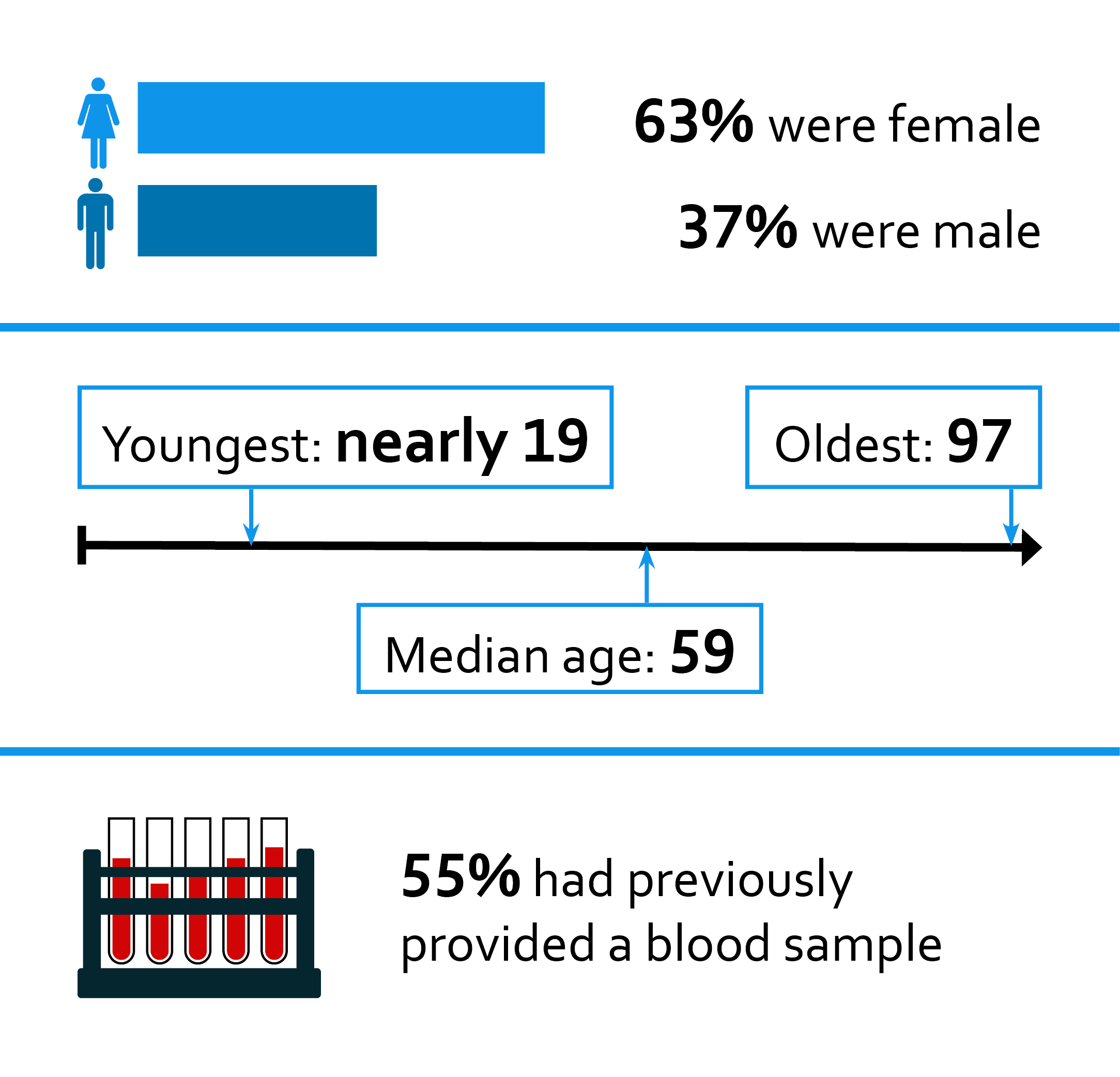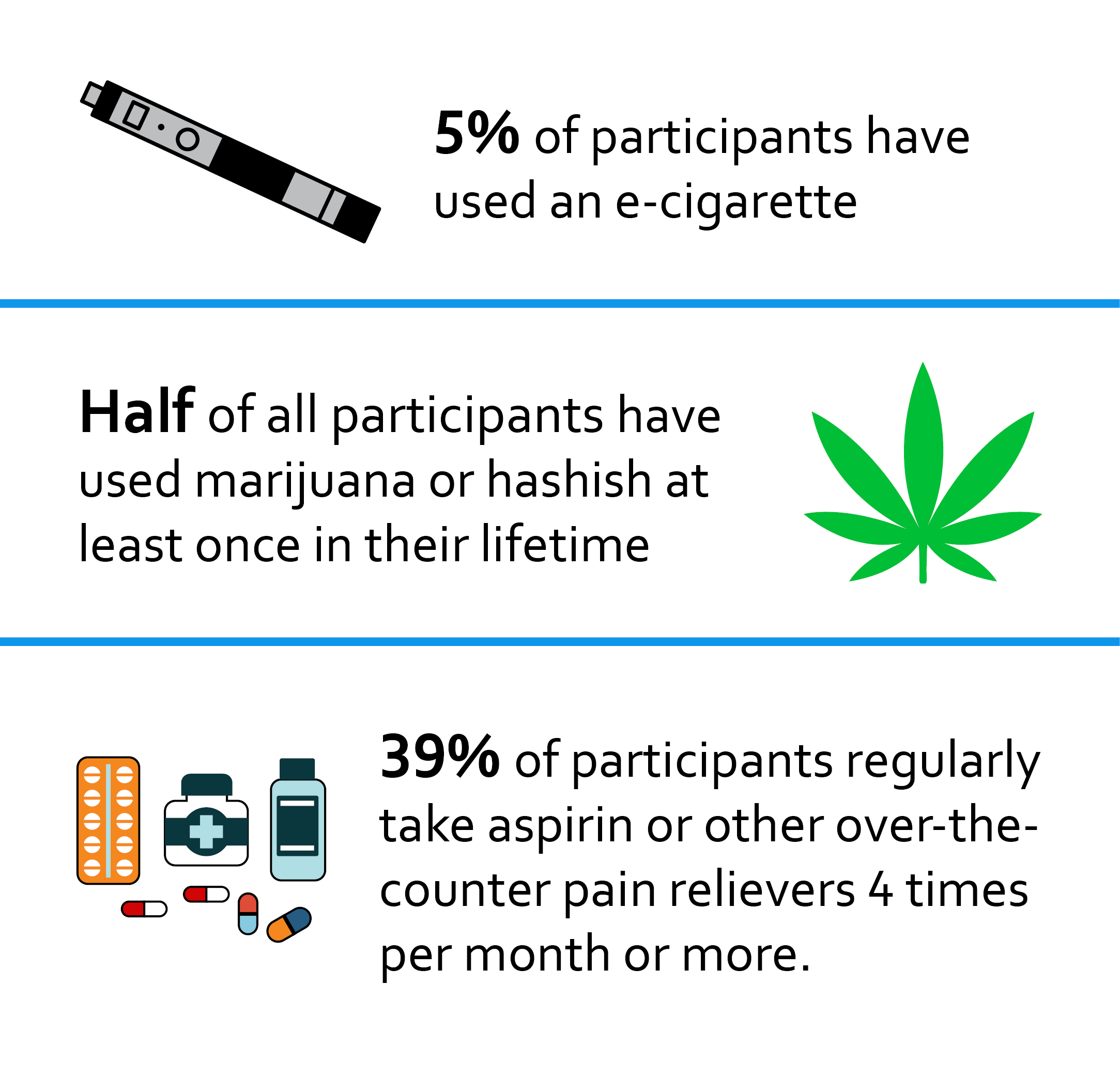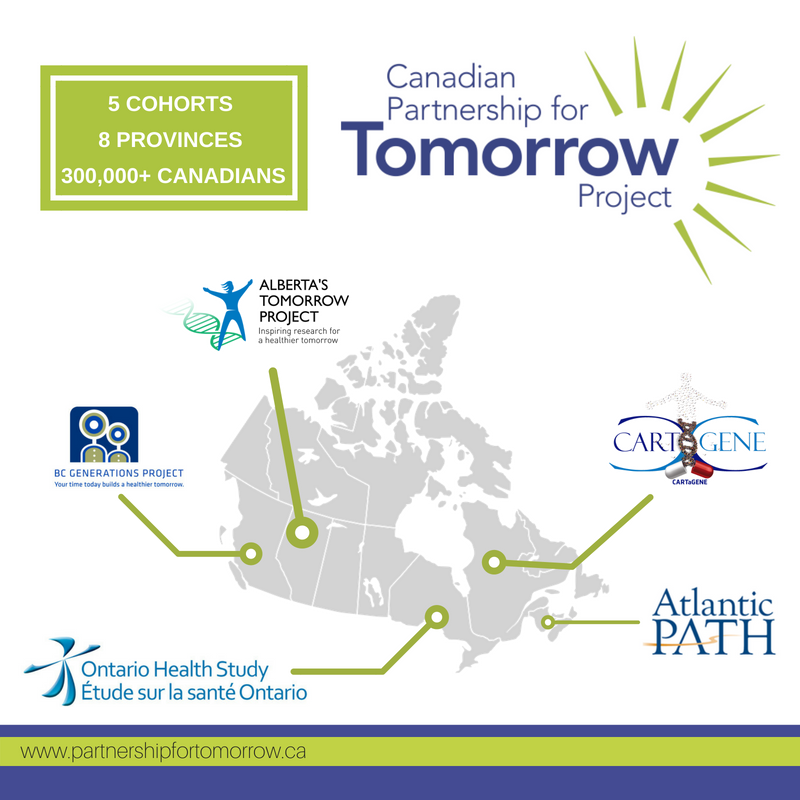The Ontario Health Study Newsletter, June 2018
Jun 6, 2018 // OHS Newsletter

In this issue:
- First (of many) follow-up questionnaires is complete!
- Head of OHS Takes On National Role
- Study finds respiratory health affected more by environment than genes
- Why did you decide to participate in the OHS?
- Reminder: Update your contact info
First (of many) follow-up questionnaires is complete!
A big ‘thank you’ to the 47,773 participants who took part in our first Follow-up Questionnaire that concluded March 31st. This is an important milestone for the OHS as it begins to measure how the health of participants changes over time, potentially over 25 years or more. If you weren’t able to take part in this specific questionnaire, don’t worry! You’re still eligible to complete future questionnaires.
Here’s a snapshot of participants who completed the Follow-up Questionnaire:

In addition to an update on your personal and family health history, this questionnaire asked a number of questions that were not covered in the initial (or “baseline”) questionnaire. Here is what we learned from our participants:

Beyond the individual data points collected, the real value is how they work together alongside known risk factors, blood sample analysis, linkage to additional databases, and how responses change over time.
So what’s next for the Study? We’re currently analyzing the data and encouraging the research community to apply for access to our platform, and a number of projects are already in progress. Keep an eye out for the second Follow-up Questionnaire later this year, and in the meantime, check out some of the already-published research using OHS data from participants like you.
Head of OHS Takes On National Role
The lead scientist and guiding force at the Ontario Health Study now also heads up Canada’s largest-ever population health research platform.
Dr. Philip Awadalla was named National Scientific Director of the Canadian Partnership for Tomorrow Project(CPTP) in March. The Ontario Health Study is part of the CPTP, along with four other regional studies.

Since 2008, the Canadian Partnership for Tomorrow Project has collected health information and biological samples from more than 300,000 volunteer participants, including over 165,000 OHS participants.
OHS participants can take pride in being part of this pan-Canada study, which Dr. Awadalla calls a “living population laboratory.”
Ontario’s scientific expertise in this area was further recognized with the announcement that the University of Toronto was chosen to lead the next phase of the CPTP, and former OHS Principal Investigator Dr. John McLaughlin was named CPTP Executive Director.
Further, Dr. Awadalla’s home institution, the Ontario Institute for Cancer Research (OICR) in Toronto, will now become the permanent location for managing and safekeeping all the data for the CPTP, including the information OHS participants have already provided.
What could this large cross-Canada study one day help answer? Says Dr. Awadalla: “One of the big questions (and potential answers) is whether the data we have collected, and will collect, can better identify risk factors or biomarkers that can prevent cancer before it develops or evolves.”
Read more about Dr. Awadalla’s take on health research.
Study finds respiratory health affected more by environment than genes
A March article published in the journal Nature Communications revealed that where a person lives, and the air quality they are exposed to, can have a greater effect on their genes than their genetic ancestry.
The study, which was led by OHS Principal Investigator Dr. Philip Awadalla, looked at some 1,000 participants in three distinct Quebec communities, and explored the relationship between environment and ancestry in the development of respiratory illnesses such as asthma and lung cancer. In a surprise to researchers, it was determined that where a person lives has a greater effect than their genetic background.
These results can have vast implications for the future of ‘precision medicine,’ as healthcare providers may eventually be able to combine genetic information with environmental exposures, in order to more accurately determine risk for many diseases and recommend the most effective treatment options. Read more.
The study is part of the Canadian Partnership for Tomorrow Project (see above).
Dr. Awadalla is also Co-director and Principal Investigator for CANUE, a study working to provide researchers with an index measuring exposures to air and noise pollution, green space and much more, for every postal code in Canada.
By providing this postal code-based exposure data to studies like the OHS and many others, CANUE will allow researchers to link environmental exposure data to our participants, providing additional information and making our platform even more useful to health researchers. It is important to note that CANUE does not have access to any of your personal health data.
Why did you decide to participate in the OHS?
In our last newsletter we asked participants why they chose to take part and remain involved with the OHS, and we received a lot of amazing answers! Here’s what one of you had to say:
“Research, on any level, is a vital component in maintaining the health of a population. The scale of the OHS, means, in some small way, that I am part of history. The hope is that the health of future generations will be improved because of this study. Why not participate?”
Thank you to everyone who sent us their story. If you want to share yours, we’d love to hear it. Email us at communications@ontariohealthstudy.ca with the subject line “OHS Feedback”.
Reminder: Update your contact info
We want to hear from you! Has your contact information changed? It takes just a moment to share your new coordinates. Even if you have moved outside of Ontario, you’re still a valued member of the Ontario Health Study.
Having current contact information for our participants is vital to the success of the OHS. As a long-term study, we collect information about your health throughout your life to track any changes that may occur. Your participation in the OHS contributes valuable information to support cancer and chronic disease research.
Some of you may have received an email noting that your date of birth is missing on your account. If you haven’t already done so, please update the date of birth on your account as age is an important factor to consider for various health conditions.
If your email, address or phone number change, please log in to your OHS homepage and update your information. This allows us to send you follow-up questionnaires and share news about the Study.
How to update your contact information:
- Log in to your account.
- Click “My Profile,” then click “Personal Information”.
- Make any necessary changes and click “Apply” at the bottom of the page.
If you need help, contact the OHS Call Centre Monday through Friday from 9am to 5pm by calling 1-866-606-0686 or emailing info@ontariohealthstudy.ca.
